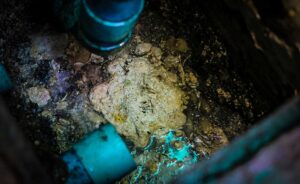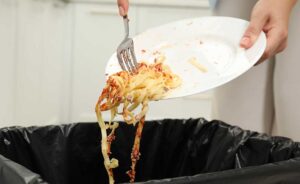Join CleanLA in the fight against sanitary sewer overflows.
Fats, oils, and grease (FOG) can build up in the sewer lines and causes restriction in flow, resulting in blockages in the sewer lines, which ultimately results in increased maintenance costs. The FOG program is in place to prevent sewage overflows into the environment, as well as to reduce the discharge of FOG to the sewer system.
Being a part of the solution is as easy as following some standard practices around the kitchen. To learn more about FOG for businesses, visit Public Works Industrial Waste and the Public Works FOG Guidelines.
Do…
- Use mesh drain strainers to catch solid food scraps for disposal in a trash can.
- Pour liquid food scraps, e.g. sauces, milkshakes, into a container and place in the trash can.
- Scrape plates over the trash can or dry wipe with a paper towel.
- Pour used oil into a container with a top (the original if available) so it can be reused, recycled, or placed in the trash can for disposal.
- Pour cooled grease into a grease can or other container for disposal and/or absorb with paper towels or newspaper.
- Pour cooled grease into a container, seal it and place it in the trash.
Do Not…
- Wash food scraps (solid or liquid) down the drain, dump them in the toilet, or grind them up in the garbage disposal.
- Wash contents of soaking pots and pans down the drain.
- Pour used oil down the drain.
- Pour hot grease (including poultry skimming) down the drain.
- Pour grease down the storm drain.
Mesh drain screens, paper towels and original oil containers are good tools for fighting FOG.
Other ways to be a part of the FOG solution include reporting any illegal dumping or spills immediately. You can also help by educating your neighbors and others in your community by sharing this website.

